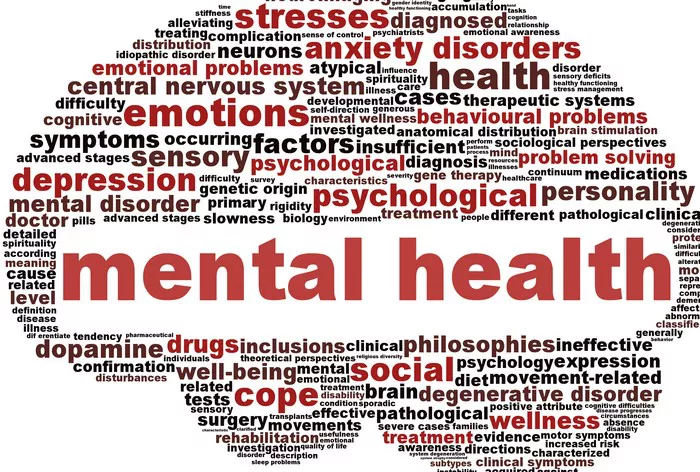Externalizing disorder is a term used to describe a group of mental health conditions that are characterized by behaviors that are disruptive and often aggressive towards others. These behaviors are typically directed outward, and can include physical aggression, verbal aggression, and other forms of antisocial behavior. Externalizing disorders are often diagnosed in childhood or adolescence, and can have a significant impact on an individual’s social, academic, and occupational functioning. In this article, we will explore the different types of externalizing disorders, their symptoms, and their treatment.
Types of Externalizing Disorders
Conduct Disorder
Conduct disorder is a mental health condition characterized by a pattern of behavior that violates the rights of others or societal norms. These behaviors can include physical aggression, theft, vandalism, and other forms of antisocial behavior. Conduct disorder is typically diagnosed in childhood or adolescence, and can have a significant impact on an individual’s social, academic, and occupational functioning.
Symptoms of conduct disorder may include:
Aggressive behavior: Physical aggression towards others, animals, or property.
Destruction of property: Vandalism, arson, or other forms of destruction of property.
Deceitfulness: Lying, stealing, or other forms of dishonesty.
Violation of rules: Repeatedly breaking rules or laws, such as skipping school or running away from home.
Oppositional Defiant Disorder
Oppositional defiant disorder (ODD) is a mental health condition characterized by a pattern of defiant, disobedient, and hostile behavior towards authority figures. These behaviors can include arguing, defiance, and refusal to comply with rules or requests. ODD is typically diagnosed in childhood or adolescence, and can have a significant impact on an individual’s social, academic, and occupational functioning.
Symptoms of ODD may include:
Defiant behavior: Arguing with authority figures, refusing to comply with rules or requests, and deliberately annoying others.
Angry outbursts: Frequent temper tantrums, verbal aggression, and physical aggression towards others.
Blaming others: Refusing to accept responsibility for one’s own mistakes or misbehavior, and blaming others instead.
Revenge-seeking behavior: Deliberately seeking revenge or retaliation against others.
Attention-Deficit/Hyperactivity Disorder
While attention-deficit/hyperactivity disorder (ADHD) is not typically considered an externalizing disorder, it can sometimes be associated with externalizing behaviors such as impulsivity, hyperactivity, and difficulty regulating emotions. ADHD is a neurodevelopmental disorder that affects both children and adults, and can have a significant impact on an individual’s social, academic, and occupational functioning.
Symptoms of ADHD may include:
Inattention: Difficulty paying attention, forgetfulness, and distractibility.
Hyperactivity: Restlessness, fidgeting, and excessive talking.
Impulsivity: Impulsive decision-making, risk-taking behavior, and difficulty controlling impulses.
Emotional dysregulation: Difficulty regulating emotions, and experiencing intense emotions such as anger, frustration, and irritability.
Symptoms of Externalizing Disorders
The symptoms of externalizing disorders can vary depending on the specific condition, but may include:
Aggressive behavior: Physical aggression, verbal aggression, and other forms of antisocial behavior are common symptoms of externalizing disorders.
Disruptive behavior: Individuals with externalizing disorders may have difficulty following rules, complying with authority figures, and may engage in disruptive behavior in social and academic settings.
Impulsivity: Impulsivity is a common symptom of externalizing disorders, and can manifest as impulsive decision-making, risk-taking behavior, and difficulty controlling impulses.
Emotional dysregulation: Individuals with externalizing disorders may have difficulty regulating their emotions, and may experience intense emotions such as anger, frustration, and irritability.
Treatment of Externalizing Disorders
Medication
Medication can be an effective treatment option for externalizing disorders, particularly for symptoms such as impulsivity and emotional dysregulation. Stimulant medications such as methylphenidate (Ritalin) and amphetamine (Adderall) are commonly prescribed for attention-deficit/hyperactivity disorder (ADHD), and can help improve attention, focus, and impulse control. Mood stabilizers such as lithium and valproic acid may be prescribed for conduct disorder and oppositional defiant disorder, and can help stabilize mood and reduce aggression.
Psychotherapy
Psychotherapy, or talk therapy, can be an effective treatment option for externalizing disorders. Cognitive-behavioral therapy (CBT) is a type of psychotherapy that can help individuals with externalizing disorders develop coping strategies, improve communication and social skills, and learn how to manage their behavior in social and academic settings. Family therapy can also be helpful for individuals with externalizing disorders, as it can address family dynamics and improve communication within the family.
Behavioral Interventions
Behavioral interventions can be an effective treatment option for externalizing disorders, particularly for children and adolescents. Behavioral interventions can include parent training, school-based interventions, and behavioral modification programs. Parent training can help parents learn how to manage their child’s behavior at home, while school-based interventions can help teachers and school staff manage disruptive behavior in the classroom. Behavioral modification programs can be tailored to the individual’s specific needs, and can include rewards for positive behavior and consequences for negative behavior.
Social Skills Training
Social skills training can be an effective treatment option for externalizing disorders, particularly for individuals with oppositional defiant disorder. Social skills training can help individuals learn how to communicate effectively, resolve conflicts, and develop positive relationships with others. Social skills training can be conducted in a group setting or on an individual basis, and can be tailored to the individual’s specific needs.
Conclusion
Externalizing disorders are a group of mental health conditions characterized by behaviors that are disruptive and often aggressive towards others. Conduct disorder, oppositional defiant disorder, and ADHD are all examples of externalizing disorders. The symptoms of externalizing disorders can include aggressive behavior, disruptive behavior, impulsivity, and emotional dysregulation.
Treatment typically involves a combination of medication and psychotherapy, and can help individuals with externalizing disorders improve their social, academic, and occupational functioning. If you or someone you know may have an externalizing disorder, it is important to seek the advice of a licensed mental health professional for an accurate diagnosis and appropriate treatment.
Related topics:
- Understanding the Diversity Within BPD
- OCPD VS. OCD: What’s the difference?
- What Are The Signs Of Menopause At 43?


